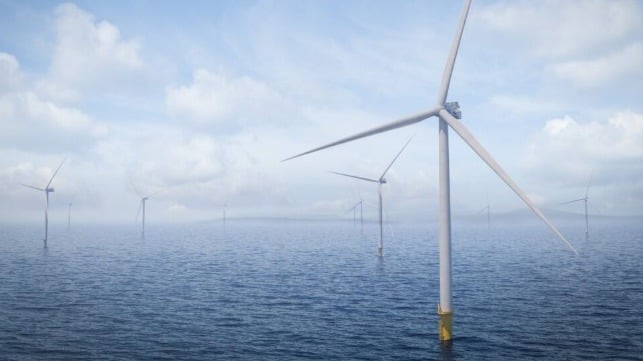DOJ Tells Court to Reject Challenge to Empire Wind’s Licensing

The U.S. Department of Justice filed a motion in an ongoing case challenging the licensing for the construction of the Empire Wind offshore energy project, citing the lack of merit in the opposition’s claims and defending the licensing process. The filing contradicts some of the positions the Trump administration has taken to challenge other offshore wind projects.
The filing was made on September 5 in the U.S. District Court for the District of Columbia in a case filed by local opponents of offshore wind that call their group Save Long Beach Island. The group has repeatedly filed claims in court seeking injunctions against the permits issued for the wind farm projects. The current case against the U.S. Department of Commerce is seeking emergency injunctive relief to enjoin the construction of Empire Wind, which is underway, as well as the effective dates of the project’s Record of Decision and the National Marine Fisheries Service’s Letter of Authorization.
In the past, the Trump administration has cited concerns over the regulatory approvals for offshore wind projects and claimed the Biden administration rushed projects through the approval process. In April, the Bureau of Ocean Energy Management stopped offshore activity for Empire Wind, citing some of these same concerns, but a month later reversed its order and permitted the project’s offshore work to resume.
Save Long Beach Island, in its case, argues against the approval under the Marine Mammal Protection Act, after having twice before made similar claims in a New Jersey court. DOJ responds citing the history of the approval noting that notices were first published in 2022, and after conducting a review and public comments, a proposed rule for Empire Wind was released in 2023. It was finalized in February 2024 and modified in January 2025.
The response from the DOJ cites the significant delay in filing the court case and the lack of responses in the public comment period as evidence that disproves any allegation of an emergency. It points out that the plaintiffs have had numerous occasions to challenge the permitting, in addition to the two prior cases. Citing that construction has been underway for well over a year, it also says disproves claims that the orders would “preserve a status quo,” or prevent irreparable harm.
“The public interest would undoubtedly be harmed by Plaintiffs’ unwarranted interference with government-issued permits and approvals,” DOJ concludes in its motion. “The public is best served when the government is permitted to use the expertise of its federal agencies to decide issues within their areas of specialization, such as the complex scientific and environmental matters at issue here. Plaintiffs attempt to improperly influence this process by asking the court to grant “emergency” relief on the basis of their layman opinions. Allowing such an outcome would harm the public interest by unnecessarily disrupting years of work and analysis that Federal Defendants conducted in connection with issuing the challenged Project approvals.”
While DOJ defends the review process and licensing for Empire Wind, it has recently told other courts that it would be moving to revoke licenses for other projects, including Maryland’s offshore wind project being developed by US Wind and Massachusetts’ SouthCoast Wind being developed by Ocean Wind North America, a joint venture between EDP Renewables and Engie. It is also targeting New England Wind, which is being developed by Avangrid, a subsidiary of Spain’s Iberdrola.
Interior Secretary Doug Burgum, Bloomberg reports, announced on September 10 during an energy conference in Milan that the U.S. is currently reviewing five offshore wind projects. This came after the administration issued a stop work order on the 80 percent installed Revolution Wind project being built by Ørsted.
“Right now, under this administration, there is not a future” for offshore wind projects, Bloomberg reports Burgum said at the conference. “I think the fact that subsidies have been either cut back or limited means that it’s likely that there won’t be future offshore wind built in America.”
Ørsted completed the U.S.’s first commercial-scale offshore wind project called South Fork Wind in 2024. Several others are under development, including Empire Wind and Vineyard Wind 1. While several developers have said they remain committed to their projects, many others have deferred or written down the value of the projects, citing the uncertainties under the Trump administration.
